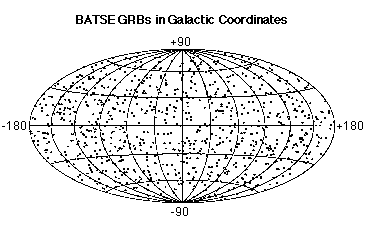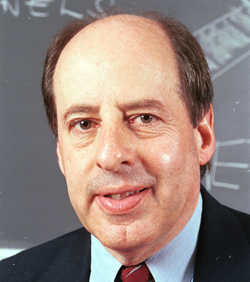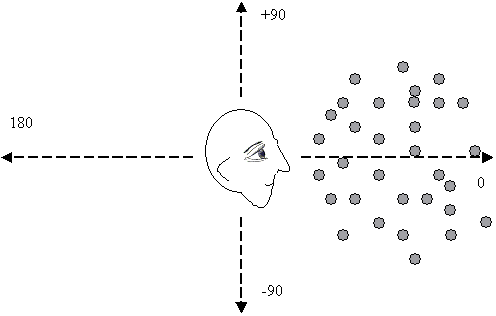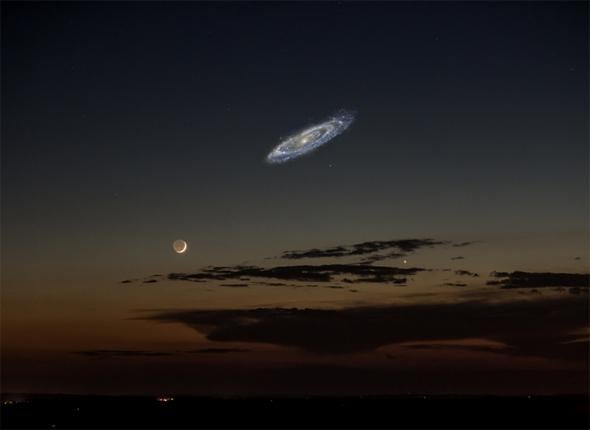The debate can be summarized like this:
As you can see, the Great Debate between Shapley and Curtis can be summed up in a relatively few words. I think, although I may certainly be wrong, that not very many memorable arguments were put forth by either debater.
(Correction, though: Galaxies are of course not separate universes from the Milky Way, just separate and independent large congregations of stars and dust in our shared Universe. And it may not be perfectly correct to say that Shapley won the debate, but he didn't lose his standing in the astronomical community because of it. By the way, the pictures are from https://slideplayer.com/slide/7011534/.)
In 1995, in order to celebrate the 75th anniversary of the Shapley-Curtis debate, there was another absolutely fascinating debate which again involved the scale of the Universe. The debate hinged on the following question, Do gamma ray bursts originate in deep space or are they local phenomena?
It was known at the time that gamma ray bursts have an isotropic distribution all over the sky, but extremely little else was known about them. It was clear that if the GRBs were nearby, they were not very powerful, but if they were very far away, they had to be incredibly energetic.
The astronomers who debated the nature of and distance to the gamma ray bursts were Don Lamb and Bohdan Paczyński. Lamb argued that the gamma ray bursts had to be local, because if they were far away, they had to be more energetic than our understanding of the laws of physics could tolerate.
Lamb proposed that the progenitors of the gamma ray bursts were located in the outer parts of a very large halo of the Milky Way. A very large halo of the Milky Way will appear to be centered on the Earth, whereas a more conventionally-sized halo (like the one that contains the globular clusters of out galaxy) will make the objects in it appear to be concentrated in one part of it from our point of view.
This image from Chandra shows the Milky Way to have an extremely large gaseous halo, so in principle, Lamb's hypothesis might have been correct. But it remains to be explained why all the gamma ray bursting objects would be located in the outer parts of our galaxy's halo and hardly anywhere else.
Bohdan Paczyński argued that the gamma ray bursts originated very far way, because, as he put it, only two things have a perfect isotropic distribution across the sky, nearby stars and distant radio galaxies. All other objects favor a specific location in the sky.
Paczyński rejected the proposition that the gamma ray bursts were as close as the nearby stars. If they are so close, he argued, why haven't we caught one in the act already, in view of the fact that they seem to be so relatively common?
Paczyński also objected to the idea that practically all the gamma ray bursters would be located in the outer regions of a huge halo of the Milky Way. Why would they all emit their gamma ray flashes at a distance of perhaps 500.000 light-years from the Earth? Why isn't there a population of more nearby gamma ray bursters closer to the disk of the Milky Way, which would give rise to an anisotropic distribution of gamma ray bursts in the sky as seen from the Earth?
Also, argued Paczyński, if there is a population of gamma-ray bursting objects in the outer halo of the Milky Way, shouldn't we see an excess of fainter gamma ray bursts in the direction of Andromeda, due to a population of gamma-ray bursting objects in the outer halo of Andromeda?
Because of all this, Paczyński argued that the gamma rays must originate very far away in deep space, likely billions of light years away. We now know that Paczyński was right. Read about gamma rays bursts here.
Astronomy Magazine published the speeches that Don Lamb's and Bohdan Paczyński's gave during their great debate, and I was blown away by the brilliance of Paczyński's arguments.
It was a fun read back in 1995!
Ann





